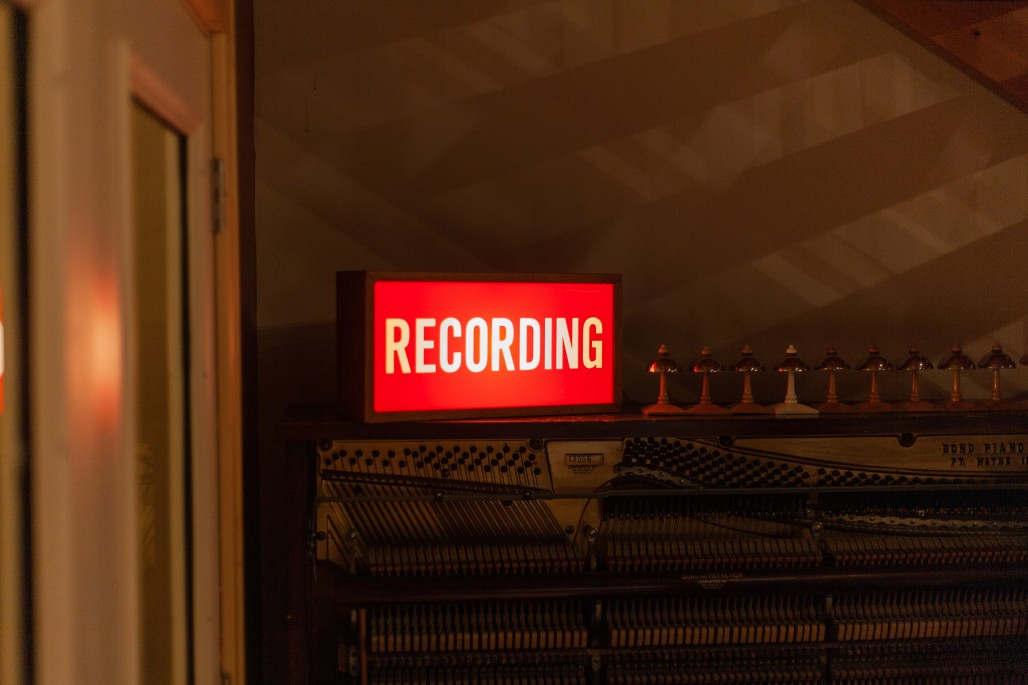December is a strong month for multilingual voice-over. Learn why professional voice artists stay av...
How The Voice Over Industry Is Changing Since The Economy Opened Up After COVID-19

The COVID-19 pandemic has had a profound impact on the economy. From unemployment to shuttered businesses, the past year has changed how we work and communicate with each other.
However, there is good news on the horizon. In the second quarter of the year, the UK economy grew 4.8%. Pupils are returning to school, people are visiting physical shops again, and many pubs and restaurants have opened their doors - and kept them that way! But a lot of workspaces look very different than they did before. And the voice-over industry is no exception.
Has the workload increased during COVID-19?
Most voice-over artists agree that, while there was a slight drop in workload in the initial phases of the pandemic, they continued to receive offers. In fact, several of them were actually for Covid response! Soon after the initial impact, it seems that the industry experienced a sharp uptick, probably in response to an increased demand for online content—for example, to be used in e-learning courses.
This is probably the reason why many more people have turned to voice-over as a work choice. For those who can record from home, VO has become a route to earn. This increase in competition has, of course, not gone unnoticed to more seasoned artists.
Online casting became a bit of a bun fight with over 300 submissions for jobs on boards where previously the same job might have garnered 100 submissions. Andy B, Spain.
One interesting thing to note is that, alongside a switch in clients from outdoor advertising to digital and radio, more customers are asking for more conversational voices - or voices that sound more natural and relatable.
More and more customers ask for conversational style voice for their ads as opposed to ‘radio/commercial voice’. They want their spots to sound more natural and relatable. Tim from Audio Experts.
This preference is noticed, in particular, when the content needs to blend in with podcasts. Which has also led to an increase in employing more artists from minority backgrounds.
Has the workplace changed during COVID-19?
The answer to this question is a definitive yes. The most significant change most voice-over artists observed was, as with many other industries, a switch to an almost entirely home-based type of work.
Before the pandemic hit, my work was split at about 75% remote 25% local. Now 17 months later I can pretty much say that 99% of the work that I do is remote. Lisa - Canada.
Before, many artists had to travel to recording studios, usually in big cities like London. Although voice-over careers had had a significant online component from the get-go, this switch was still a noticeable change for a lot of people. In particular, those who didn't have good home studios found the situation a challenge. However, the ones that did quickly turned to remove sessions that have mostly stayed that way until today. Source Connect and Zoom were the apps that facilitated this transition. Because home recordings can vary in quality, many artists had to invest in better studios to guarantee quality work delivered in time. This usually meant buying new headsets, microphones, and mixers.
It's worth noting, however, that during the last months, some offices have begun calling people in person again. Sam from CGG explained how they managed to keep a safe working environment in their offices during the lockdowns. With only 10% of staff working on-site, they focused their efforts on educating their employees about remote working and the dangers of sedentarism. Nick, Creative Director at Edge Pictures, agrees. When the pandemic began, they switched to small shoots in a very stringent COVID-secure environment. As restrictions eased, people started feeling more certain about the future, and new clients increased their work requests.
For (our) instructors, we have soundproof specialist recording pods in various offices around the World. However, for these, we adapted and got home set-ups shipped out, including specialist headsets, microphones, mixers etc. Sinan from Skillsoft.
Some jobs, like ADR, will always require in-studio recording. However, many companies have realised that it's easier and quicker to cast talent remotely instead of renting more expensive studios.
Does more competition mean decreased wages?
Some artists feel the increase in competition has incited a decrease in rates.
I feel that since more agencies have been using generic sites to cast their briefs there is an increasing move towards lowering fees. I regularly see fees of £75-100 offered for online videos which, in real life, wouldn't even get me in the studio! Robbie - United Kingdom.
Undoubtedly, there are now more people who own a studio, and more actors training to work in the industry. As a result, the turnaround for auditions and projects has also become faster.
With the realization on the part of producers, that talent were just a few steps from their home studio, it seems they also realized, “Heck, I can probably get auditions for this a lot faster and record even sooner. Jessica - USA.
The influx of new voice-over artists, be it because of job losses, a career shift, or simply more free time, has created a bigger market. At the end of the day, however, each one has a unique voice and style. As one of our interviewees said, "the best thing we can do to keep booking or start booking is to train".
Has the balance been better after Covid?
Not everyone is happy with how things have changed for the voice-over industry, but most people are adapting. There are fewer borders, or rather, many have saved costs in travelling and commuting. However, the turnaround expectations are more demanding, with many clients asking for work to be finished on the same day.
A lot of artists also miss going to the studio, even for occasional sessions. They also regret having 100% virtual relationships with their peers instead of seeing them face-to-face at socials and training.
I love working from my home studio, but I also love going to a recording session in a studio with a sound engineer and the client. It’s a different energy. So I hope clients will keep organizing recording sessions in studios for some kind of projects like documentaries. Michele - France.
The reduction of work with the influx of newcomers and lockdowns still taking place in some parts of the world is definitely a challenge. But for those with a regular income of projects, the COVID-19 pandemic has given them a chance to spend more time at home and manage their work around their life, rather than the other way around. Some have even moved abroad:
I was working from my studio in the uk before and now I do it from Gran Canaria. It makes no difference to my clients but I get to live in the sunshine. Andy B, Spain.
Compared to other fields, the voice over industry hasn't been as negatively affected by the pandemic. Despite the challenges, many actors have been able to grow their businesses.
I guess the way my identity changed as a voice actor after the rate of the pandemic is that now I feel more humbled and I have more faith in the resilience of voice acting as a profession. Lisa - Canada.
The future of voice-over acting after COVID-19
One of the most significant changes that the pandemic has brought to the industry is an influx of new voice-over talent.
Traditionally, voice-over rates had become standardised by a combination of actors being aware of their worth and unions engaging in the process. When newcomers accept lower rates, be it for necessity or because they don't know the correct rates, they can set a precedent that affects others. It's important that more experienced actors help educate these new voices so everyone can benefit in the long term.
For many actors, the pandemic has created an opportunity to set up their own studios and accept more remote work. In some cases, this has allowed them to relocate to better or cheaper locations around the world and spend more time with their families. As a result, the work-life balance has improved, like in many other industries that can rely on technology.
One issue that seems to concern many artists is the inevitable arrival of artificial intelligence. Many companies are looking for VO artists to record thousands of sentences for AI projects. At the same time, several companies have spent the months in lockdown improving their AI and machine learning algorithms.
I think the greatest fear, notwithstanding Covid, is AI. I think that is the greatest threat to our industry as well as many others. Ramesh - Canary Islands.
Voices generated by artificial intelligence are sounding more human each day. These synthetic actors are being used mostly for virtual assistants, game characters and corporate videos. However, making a voice realistic takes more than pressing a button. Part of what makes the human voice unique is its inconsistency, expressiveness, and ability to read and adapt to context.
The home studios are getting better, are more convenient in terms of speed of delivery, for example and are cheaper to hire than the studios in town. It also allows the creative industry to have a wider choice of voice artists. They are no longer restricted by location. Nic, Creative Director at Edge Pictures.
All in all, the world has changed, probably forever. But some things remain the same. We all value our independence and ability to adapt or start afresh. And we love our connections with our families and our coworkers. Human life is nuanced, and so are the voices in which we express our experiences and create projects.
Newsletter
Stay up to date with news and special offers. Get to know our new actors and features
NEED HELP?
Visit Frequently Asked Questions page or send us a question.











.png)











Comment